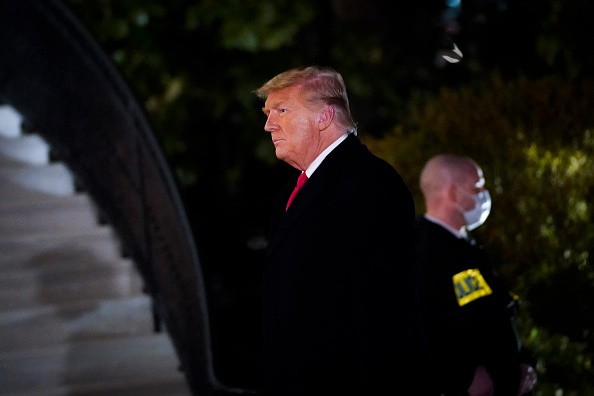
President Donald Trump declared a surge of pardons for individual Republican allies to two men in Robert Mueller's Russia investigation who pleaded guilty.
In the meantime, there is talk that President Trump will forgive three of his adult daughters, his son-in-law, and or even himself before his term ends on 20 January.
But what if Trump issues these pardons and no one finds out, unlike those just made public? That's not as far-fetched as it might seem.
READ: Stimulus Bill Includes $25 Billion in Rental Assistance. Are You Qualified? Here's How to Apply
A final list of pardons and commutations that could exceed more than 100 names, advisors said Monday, is being put together by President Donald Trump and aides.
But Trump is not expected to forgive himself or issue preemptive pardons for his family members, said aides who were not permitted to comment publicly and declined to address who could be on the list that has been produced for weeks.
The Constitution gives the president the "power to grant reprieves and pardons for crimes against the United States, except in cases of impeachment." We have argued that this power should be used more frequently as a vital mechanism of mercy when reducing our prison populations, tempering the often harsh, racist, and inequitable effects of our criminal legal system.
But the parole power comes with the possibility of violence as well. It has never been more apparent than under President Trump, who used it to grant amnesty to individuals convicted of his presidential campaign crimes. It is now claimed that Trump is considering seeking to forgive himself for a range of crimes that would be unparalleled.
The relation is brief, but there are some limitations. Pardons do not erase sentences, but the fines for convictions are erased. Before or after a criminal trial, they do not necessarily have to obey convictions and may be released. Only federal crimes, not state crimes and not civil actions, may be pardoned by the president. For impeachment cases in Congress, pardons can also not be issued, meaning the person being impeached can not be forgiven because they were accused.
While pardons have always been part of the president's powers, the final days of Trump have sparked unprecedented concerns of self-pardon and hidden pardons.
It keeps opening the possibility that he will secretly issue pardons to those whose pardons are not wanted in the public record either by him or the recipients. In the case of some future "witch hunt," a secret pardon would allow them or others to keep compassion in their back pocket, to quote Trump, at the same time avoiding the rage that would undoubtedly come with a public pardon announcement.
ALSO READ: Tearful Pelosi: Congress Members Who Were Accomplices to Capitol Siege May Be Prosecuted
In an earlier episode of The Last Word, whether a presidential pardon could be given in secret, O'Donnell asked former U.S. pardon lawyer Margaret Colgate Love.
We never had secret pardons, "We have never had secret pardons and the whole idea of a pardon is that it is a public document," and the whole idea of a pardon is that it's a public document. Love noted that after the assassination attempt on Trump's life, President Regan issued two pardons that didn't become public until two weeks later.
Others claim, however, that pardons were supposed to be issued officially and would not stand up as accurate if challenged in a court of law.
We can't know for sure whether, of course, Trump will do this. But no one should be shocked with his having done too many times the previously unimaginable if he grants pardons before he leaves office that never sees the light of day unless the recipient is investigated or charged.








